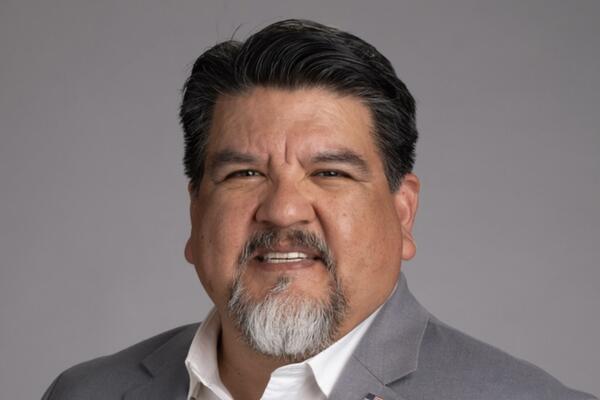
Charles “Chuck” F. Sams III — a national leader in environmental stewardship, tribal sovereignty, and public service — is joining the Yale Center for Environmental Justice as its inaugural director of Indigenous Programs. Sams brings over 30 years of leadership experience to his role at the Yale Center for Environmental Justice. Most recently, he made history as the first Native American to serve as Director of the National Park Service, where he championed initiatives to expand equitable access to public lands, deepen and expand tribal co-management, and strengthen climate resilience across the country’s most treasured landscapes.
“Over the last four years, the Yale Center for Environmental Justice has laid a strong foundation of scholarship, teaching, and impact with and for Indian Country. I’m excited to scale that work but also to reach across the campus to advance scholarship and traditional practices in Indigenous ecological knowledge and lifeways.” Sams said.
His appointment marks a pivotal new chapter for the center as it expands its leadership in advancing Indigenous governance, sovereignty, and knowledge systems in response to the climate crisis. YCEJ is actively building tribal capacity through programs that support co-management frameworks, climate governance, and equitable implementation of the
Inflation Reduction Act (IRA) in Indian Country. The center is currently working with more than 10 tribal governments, providing technical, legal, and policy support in advance of key environmental decisions anticipated before 2026. In partnership with the Clean and Equitable Energy Development (CEED) program, and through the potential development of a Tribal Co-Management Certificate, YCEJ has been working to learn from and to support Indigenous leadership in environmental decision-making.
“Indigenous knowledge holds the key to solving some of our most intractable problems,” said Gerald Torres, YCEJ’s Founder and the Dolores Huerta and Wilma Mankiller Chair Professor of Environmental Justice. “Chuck will accelerate work across Yale to mainstream that knowledge.”
The center has supported the development of more than five new courses at Yale Law School and the Yale School of the Environment. Through its Tribal Co-Management Clinic, YCEJ provides hands-on legal and policy support for emerging co-governance frameworks. The center also collaborates with foundations and federal agencies, including the Department of the Interior, to design new evaluation and benchmarking tools that elevate Indigenous priorities in the development and implementation of environmental and climate strategies.
In addition to leading the center’s Indigenous programs, Sams will co-teach a course with Pat Gonzales-Rogers, YSE lecturer and executive fellow, on Public Lands and Native Rights. Deepening student engagement with Indigenous legal and environmental frameworks and strengthening the university’s capacity for transformative, place-based learning. “Chuck will be leading a great team that includes leaders in Indigenous legal education, like Professor Torres and Jim Diamond, YCEJ’s senior counselor for Indigenous Programs, and multiplying the impact of dozens of affiliated faculty across the University,” said Michel Gelobter, YCEJ’s executive director.
During his tenure as NPS Director, Sams completed over 150 tribal co-stewardship agreements, deployed more than $5.2 billion in deferred maintenance and repairs across park units in all 50 states and three U.S. Territories. He implemented workplace improvements to enhance the physical and mental health of all staff. He has previously held senior executive roles with the Confederated Tribes of the Umatilla Indian Reservation, the Trust for Public Land, and the Earth Conservation Corps, consistently advancing Indigenous stewardship and collaborative conservation.
A U.S. Navy veteran, Sams served honorably as an intelligence specialist, laying the groundwork for a foundation of leadership and strategic insight that has informed his work across multiple sectors. He holds a Bachelor of Science in Business Administration with a focus on Management, Communications, and Leadership from Concordia University and a Master of Legal Studies in Indigenous Peoples Law from the University of Oklahoma College of Law. Chuck holds several personal and professional honors, including the U.S. President’s Service Medal for work in the Environmental Field from the Points of Light Foundation, the Walter T. Cox Award from Clemson University’s Institute for Parks, and honorary doctorates in Humane Letters from Portland State University and Whitman College.
An enrolled member of the Cayuse and Walla Walla of the Confederated Tribes of the Umatilla Indian Reservation, Sams has long worked to advance tribal sovereignty, natural resource management, education, and cultural revitalization. His deep commitment to environmental justice and community-driven governance reflects the core mission of YCEJ: to work alongside frontline communities to build a just and sustainable future.
About the Yale Center for Environmental Justice
YCEJ is a joint initiative of the Yale School of the Environment, Yale Law School, and the Yale Center for the Study of Race, Indigeneity, and Transnational Migration (RITM). Founded in 2021, the center helps develop and scale solutions for some of the world’s most pressing environmental problems, including the climate crisis. YCEJ’s work is guided by an Advisory Council of distinguished leaders from across academia, policy, philanthropy, and advocacy.



